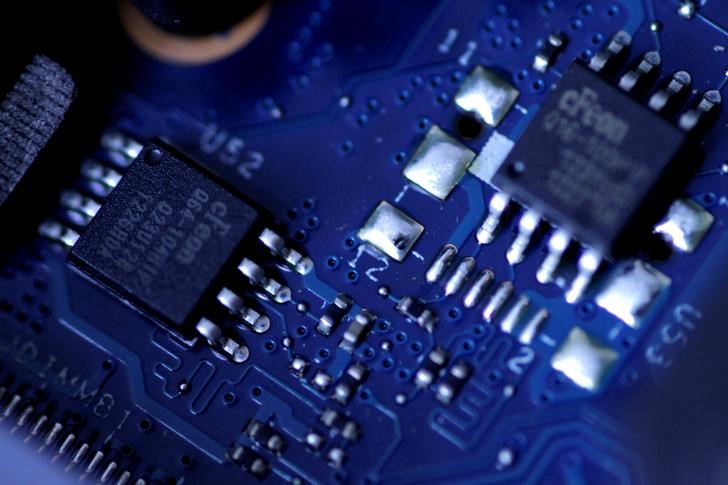Investing.com - ON Semiconductor slumped on Monday, exacerbating a broad-based China-inspired slump across chip stocks, as its second-quarter revenue fell short of estimates and the chipmaker warned geopolitical factors would continue to dent chip demand.
The company reported earnings of 42 cents a share, down 9% from a year ago and in line with consensus estimates from Investing.com of 42 cents a share. But revenue of $1.35 billion, down about 7% compared to 2018, fell short of estimates for $1.38 billion, sending ON Semiconductor (NASDAQ:ON) tumbling more than 8%.
The chipmaker also warned that weaker demand would continue to keep a lid on growth in the near term, forecasting 2019 third-quarter revenue to be about $1.355 to $1.405 billion and gross margin in the range of 35.2% to 36.2%.
"Business conditions continue to be soft, and we expect to see sub-seasonal demand trends in the near-term, as geopolitical factors will likely continue to weigh on demand. Despite near-term weakness in demand, key secular trends driving our business remain intact,” said Keith Jackson, President and CEO of ON Semiconductor. “Against a backdrop of soft demand and limited visibility, we continue to focus on execution to mitigate the impact of current softness in demand. We remain confident in our strategy of focusing on secular megatrends in automotive, industrial, and cloud-power end-markets, and we are prudently investing to further strengthen our position in these markets."
The dour outlook for semis heaped further pressure on the sector on the heels of rising U.S.-China trade tensions, which have hurt chip companies with high revenue exposure to China such as Nvidia (NASDAQ:NVDA), Micron Technology (NASDAQ:MU) and Intel (NASDAQ:INTC).
"This high exposure to China puts the semiconductor sector at greater risk to the escalation in the U.S.-China trade war than many other segments of technology,” said Quinn Bolton, senior semiconductor analyst at Needham.
A week after President Donald Trump threatened to impose new levies on $300 billion worth of Chinese goods, effective Sept. 1, Beijing hit back, allowing the yuan to tumble to the weakest level in more than a decade and requesting state-owned companies to suspend imports of U.S. agricultural products.
That prompted a response from Trump, who on Monday accused China of currency manipulation, raising fears of an escalating trade war hitting demand.
The Philadelphia Semiconductor Index was down about 4%, but boasts gains of about 23% for the year so far, well above the broader market's 14%.
